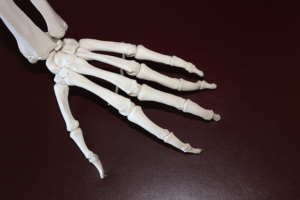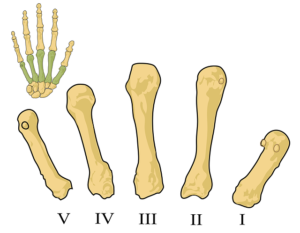Rheumatoid arthritis in knees: Pictures, symptoms, and more – Medical News Today
Rheumatoid arthritis (RA) is an autoimmune condition, meaning the immune system mistakenly attacks healthy tissues. RA in the knees may severely affect a person’s mobility.
RA commonly affects the joints in the hands, wrists, and knees, causing the lining of the joints …….

Rheumatoid arthritis (RA) is an autoimmune condition, meaning the immune system mistakenly attacks healthy tissues. RA in the knees may severely affect a person’s mobility.
RA commonly affects the joints in the hands, wrists, and knees, causing the lining of the joints to become inflamed and damaged. RA is typically symmetrical, affecting both sides of the body equally.
There are around 1.5 million individuals in the United States with RA. They may have difficulty carrying out everyday activities, and if RA affects their knees, they may find walking, climbing stairs, and general mobility challenging.
If people do not seek treatment for RA, it can cause progressive inflammation, resulting in damage to the joints that can ultimately lead to permanent disability.
In this article, we look at how RA affects the knees, and we discuss the symptoms and treatment options.
The knees are the largest and strongest joints in the body. The knee consists of the kneecap, the lower end of the thighbone, and the upper end of the shinbone. The ends of these bones form the knee joint.
Protective cartilage that cushions the bone as the knee bends and straightens covers the ends of the bones. A thin capsule of tissue called synovial membrane lines the joint. The role of this membrane is to release lubricating fluid that reduces friction and protects the cartilage and ligaments.
If RA affects the knees, the immune system mistakenly targets the synovial membrane. This reaction causes inflammation and painful swelling due to cell proliferation, or growth. The swollen synovial membrane then limits movement.
RA commonly affects the knees on both sides equally.
As the condition progresses, swelling damages cartilage and ligaments, which can no longer cushion against friction. This results in the cartilage wearing away, allowing damage to the bones to occur.
Occasionally, the bones can fuse, which doctors call ankylosis. Ankylosis affects around 0.8% of people with RA.
Individuals can experience extensive damage from RA, which can leave them with disabling, life-changing symptoms.
People with RA have times when their symptoms worsen, called flare-ups, or improve, called remission.
Typically, the knees gradually become more painful and inflamed. Some individuals, however, may experience sudden intermittent symptoms.
If a person has RA in their knees, they may have symptoms such as:
- stiff, swollen joints that are difficult to bend and straighten
- pain and swelling, which may be worse after periods of rest
- pain that …….
Source: https://www.medicalnewstoday.com/articles/rheumatoid-arthritis-in-knee







